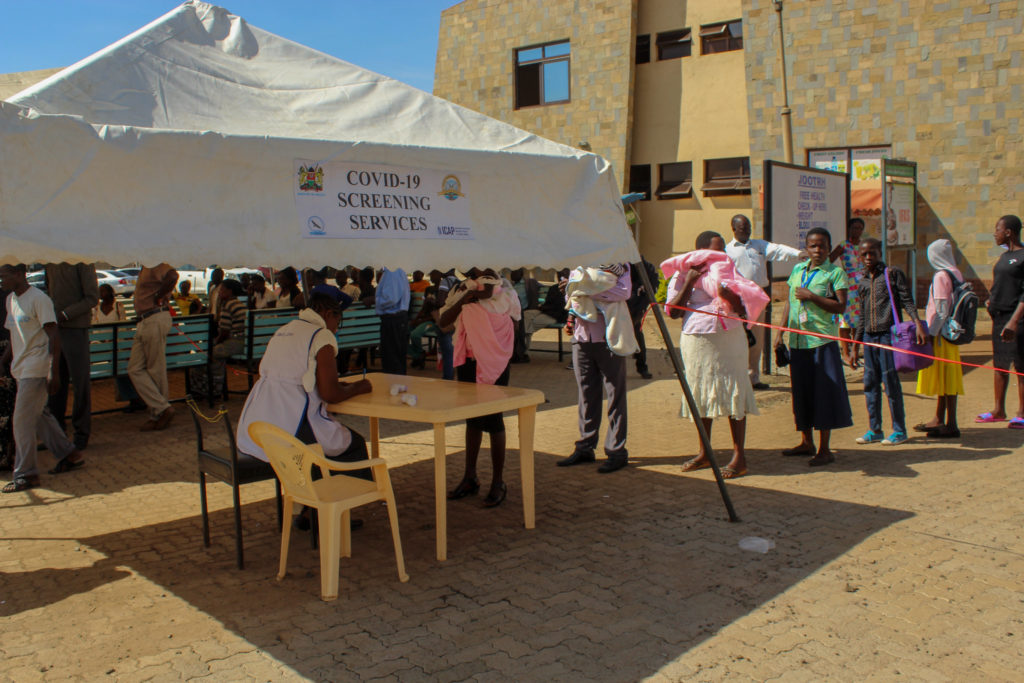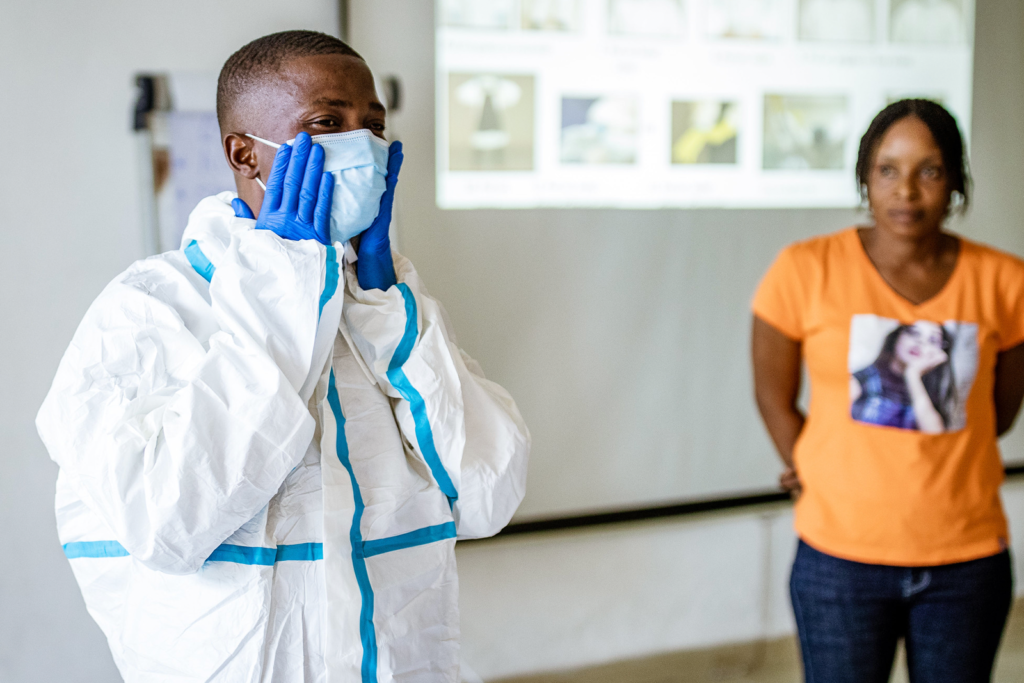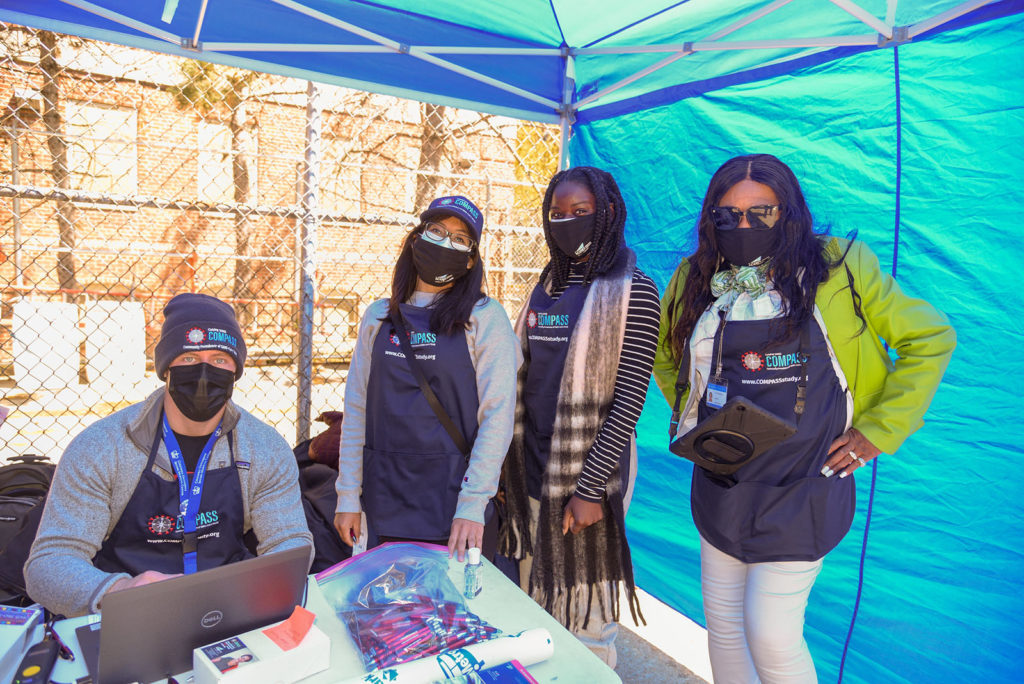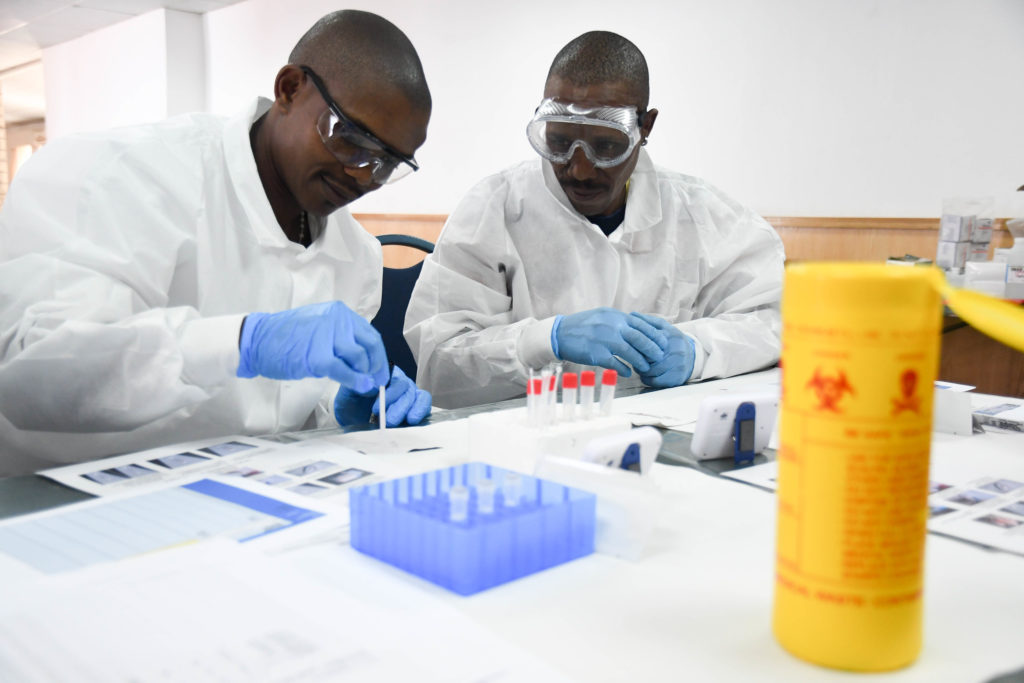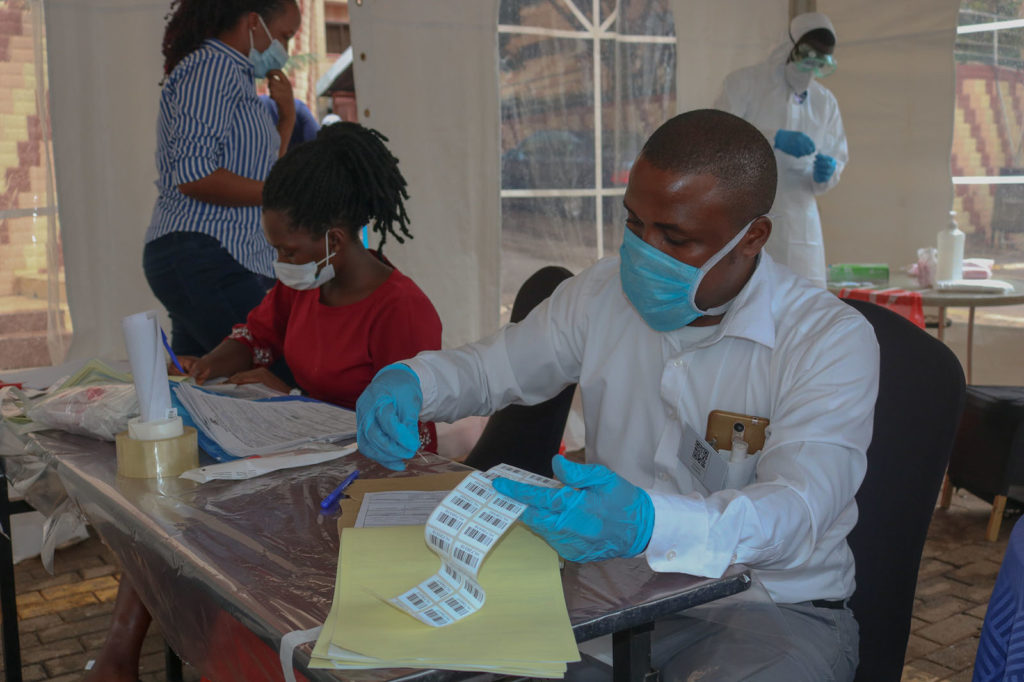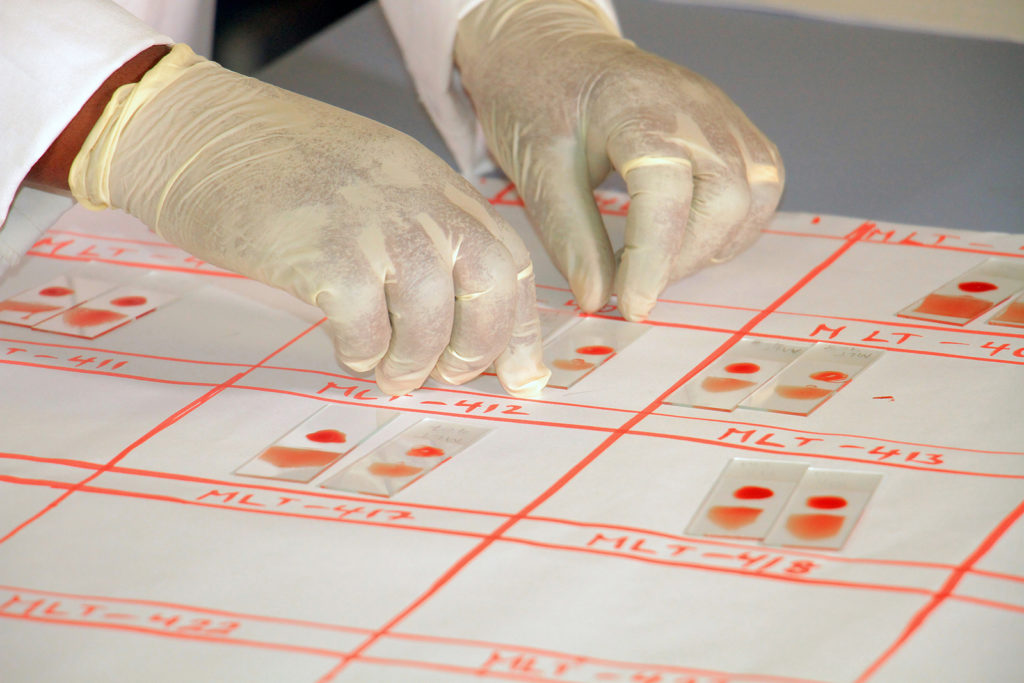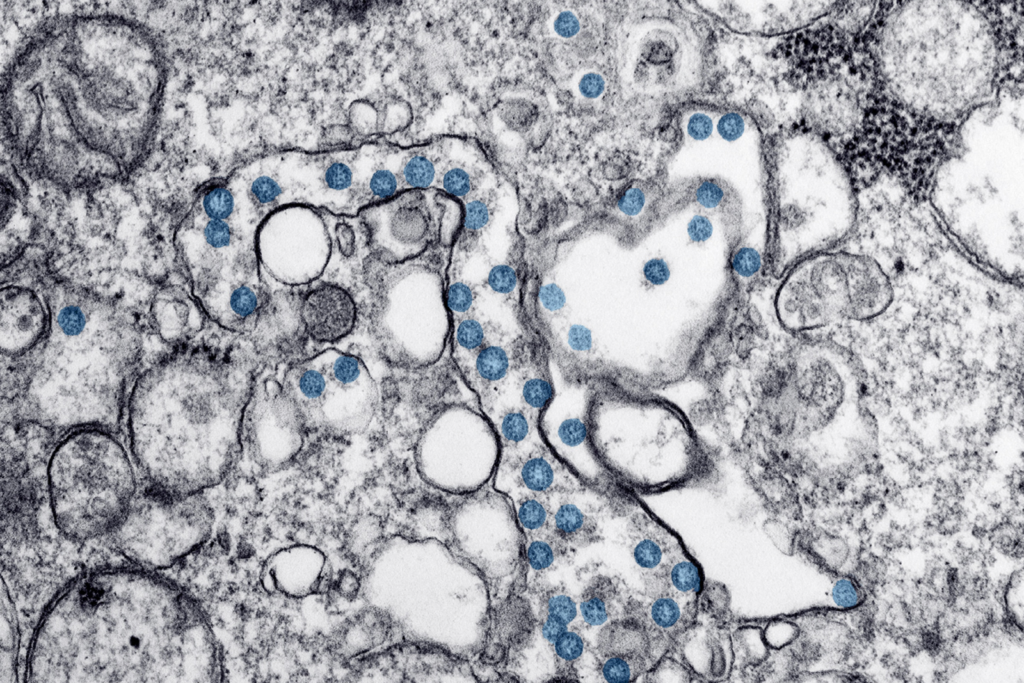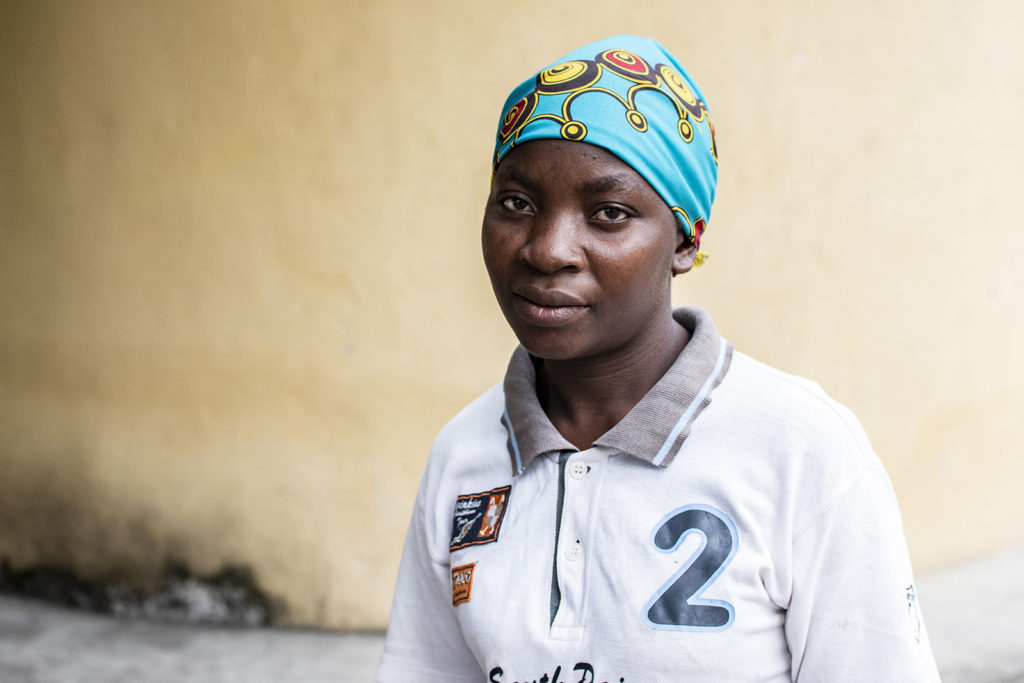Training Frontline Health Care Workers
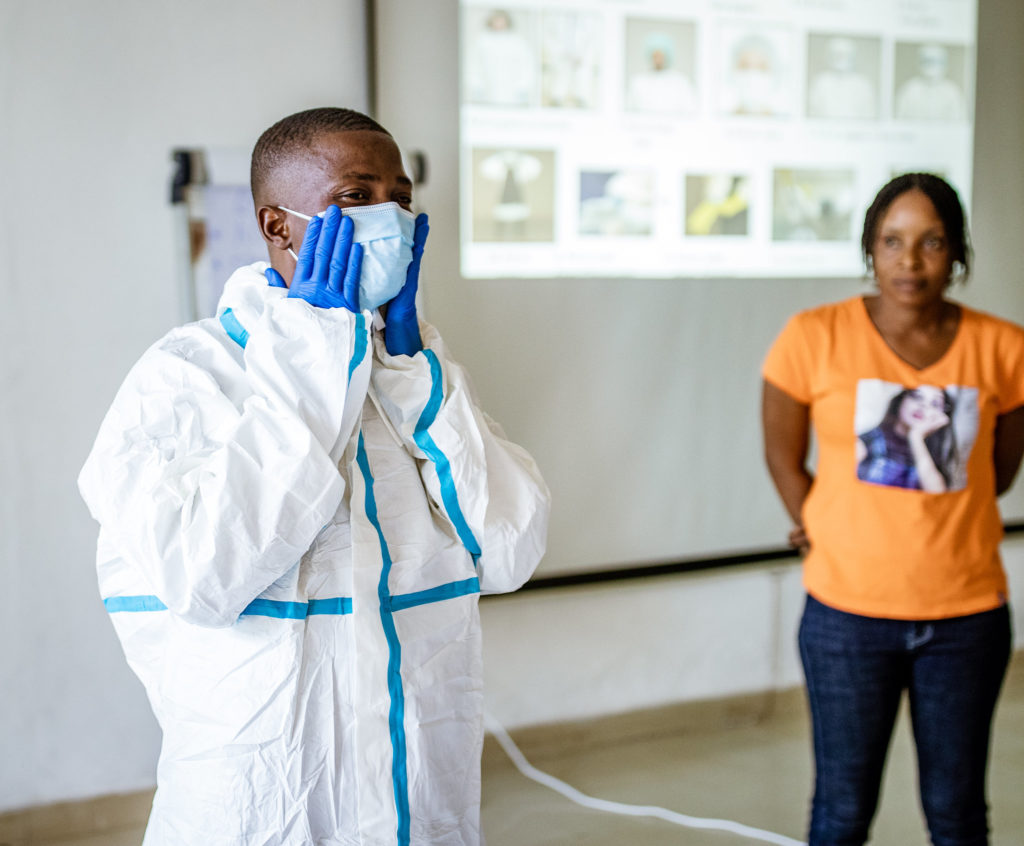
As the COVID-19 pandemic arrived in Sierra Leone, ICAP’s experience in health care worker training, mentoring and supportive supervision proved to be a critical asset. Before the coronavirus crisis emerged, a group of 24 health workers had just completed ICAP’s six-month advanced certification program in Infection Prevention and Control (IPC). Celebrating their accomplishment at the February graduation ceremony in Freetown, Dr. Thomas Samba, the country’s chief medical officer, presciently said, “The newly evolving landscape of infectious diseases across the world is a stronger justification for developing a pool of IPC experts in all countries, especially in developing countries such as Sierra Leone.”
In 2014, Western Africa had faced the largest health emergency in its history with the rapid community spread of Ebola, a deadly disease. During the epidemic, Sierra Leonean health workers were 21-32 times more likely to be develop Ebola Virus Disease compared to the rest of the population, and it is estimated that one in five members of the health workforce died from this disease. A lack of IPC resources and critical knowledge—including how to use personal protective equipment and practice of other measures—had been recognized as a driving force for the rapid spread of Ebola among health workers.
Now, six years after the Ebola outbreak, ICAP continues to spearhead a series of projects to strengthen the national health system’s IPC practices to detect, prevent, and respond to the country’s recurring natural disasters and public health emergencies. Under Sierra Leone’s government’s leadership, ICAP’s health care worker quality improvement evidence-based training initiative, designed to establish a cadre of IPC specialists across the country, has significantly increased the health system resiliency and responsiveness to new health threats. The first cohort’s graduation came just in time for their deployment into leadership positions for the COVID-19 IPC preparedness and response activities throughout the country.
From live distance learning to tele-mentoring and WhatsApp™ support groups, ICAP has been pioneering virtual training, supervision, and support of health care workers in resource-limited settings.
Miriam Rabkin, MD, MPH,
ICAP Director for Health Systems Strategies
Mame Toure, MD, MsC, the country director of ICAP in Sierra Leone, said, “These trainings, which engaged hundreds of health care workers at our high-volume health facilities, have been critical to protecting our precious health workforce and their patients from COVID-19.”
Funding: U.S. Centers for Disease Control and Prevention (CDC) and in partnership with the Ministry of Health and Sanitation (MoHS) and the World Health Organization (WHO).
TRUSTED
EMPOWERING
SUPPORTIVE
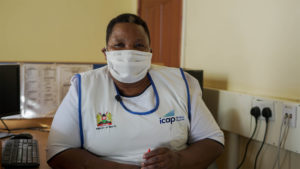
Supporting Nurses and Midwives Globally
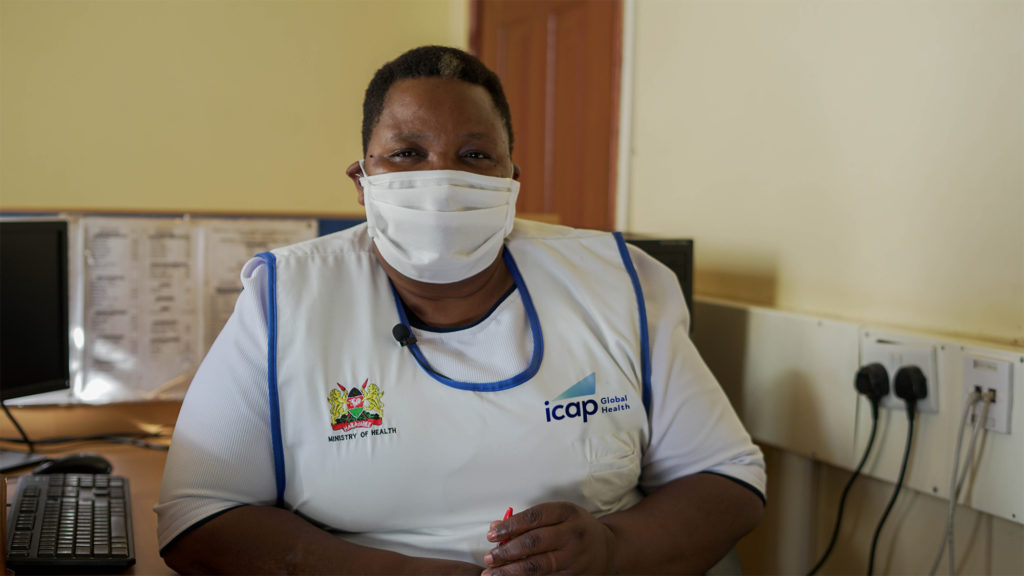 Nurses and midwives are the main providers of health care in the countries where ICAP works. In ordinary times, they provide upwards of 90 percent of health services, frequently serving as the primary touchpoint between patients and the health care system.
Nurses and midwives are the main providers of health care in the countries where ICAP works. In ordinary times, they provide upwards of 90 percent of health services, frequently serving as the primary touchpoint between patients and the health care system.
The onset of the COVID-19 pandemic put these invaluable frontline workers at risk and required new training protocols to enable them to care for themselves and their patients. ICAP quickly rose to the challenge in 15 countries supporting innovative virtual training on COVID-19 disease diagnostics, infection prevention and control, triage care and communication strategies. To protect the safety of frontline health workers, ICAP supported the procurement hundreds of thousands of pieces Personal Protective Equipment (PPE), thermometers, and hand wash stations, across more than a dozen countries.
ICAP’s nimble response to COVID-19 leveraged its long-time commitment to training frontline health care workers and deep partnerships with ministries of health. Since 2006, a strategic pillar of ICAP’s approach to capacity-building for health systems in resource-limited countries has been to ensure that nurses and midwives have the training, equipment and respect they need and deserve, with ongoing professional education and robust professional networks. Because a strong nursing force leads to improved health and wellbeing for patients, ICAP has advocated that every initiative to strengthen a health system should support nurses as a critical component.
The wisdom and experience of nurses is fundamental to building health systems able to achieve universal health coverage rooted in strong models of primary health care. By building more resilient and more highly trained frontline health workers, health systems will be strengthened not only in the course of normal operations, but more importantly, during times of crisis.
Susan Michaels-Strasser, PhD, MPH, RN, FAAN
ICAP’s Senior Director for Human Resources for Health Development
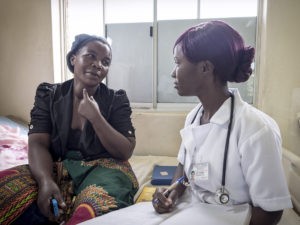
Honoring Nurses and Midwives
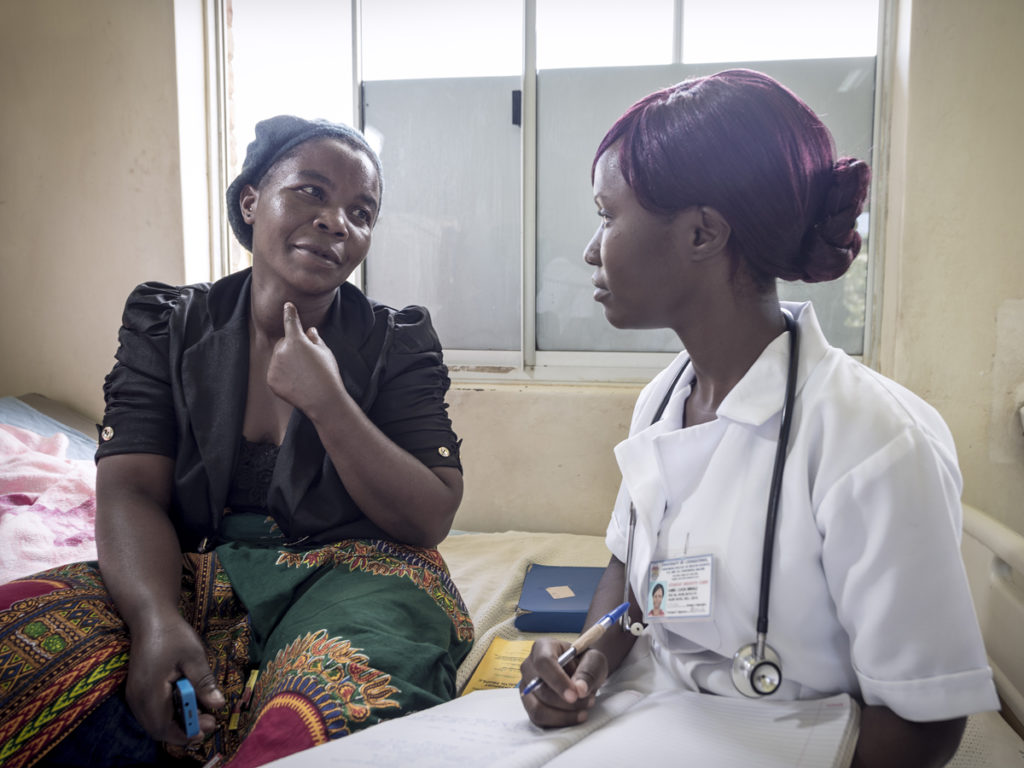 In 2020, ICAP joined the global celebration of the International Year of the Nurse and the Midwife, commemorating the bicentennial of the birth of Florence Nightingale at a time when the importance of nurses has never been clearer.
In 2020, ICAP joined the global celebration of the International Year of the Nurse and the Midwife, commemorating the bicentennial of the birth of Florence Nightingale at a time when the importance of nurses has never been clearer.
Among its activities, on October 15, 2020, ICAP convened Courage to Care, a half-day virtual conference exploring the roles of nurses as leaders in health and how their unique contributions can enhance health care systems around the world. During a keynote session, supermodel and registered nurse Maggie Rawlins cited the nursing profession’s longstanding reputation for “stepping up” during previous health crises. “During a crisis, nurses are always the first ones to step up whether they are giving direct patient care in the hospital or organizing large-scale health organizations,” she said. “Throughout history, nurses have always run to the front lines.”
During the conference, ICAP also honored health workers on the frontlines of the COVID response. The new Courage to Care Award was awarded jointly to John Katala, a community outreach volunteer in Tanzania who selflessly brought ART prescription refills directly to patients’ homes during the pandemic, and to the team at the Rwanda Biomedical Center, which worked tirelessly to safeguard the health of the Rwandan people and to protect the public health system at large.
More Impact Stories
Story One
Pivoting to Protect Vulnerable Populations
Story Two
Training Frontline Health Care Workers
As the COVID-19 pandemic arrived in Sierra Leone, ICAP's experience in health care worker training, mentoring and supportive supervision proved to be a critical asset.
Story Three
Researching Biomedical Responses to COVID-19
Recognizing the urgency of developing prevention and treatment responses to COVID-19.
Story Four
Saving Lives with Music
Story Five
Sustaining Methadone Treatment During Lockdown
Story Six
Harnessing Tech to Advance HIV Recency Testing
In the early days of the COVID pandemic, Zimbabwe had low infection rates, and people knew very little about the rapid global spread of the virus.
Story Seven
Surveying the HIV Epidemic Undaunted
Since 2014, the Population-based HIV Impact Assessment (PHIA) Project has been guiding the global HIV response by conducting national representative surveys that chart the state of the HIV epidemic across 15 countries.
Story Eight
Responding to Malaria in Remote Regions
For people who suffer from stigma and fear, including sex workers...
Story Nine
Confronting the Threat of Antimicrobial Resistance
While the rapid spread of COVID-19 continues to dominate headlines around the world, another health crisis looms large.
Story Ten
Connecting Key Populations to Care
For people who suffer from stigma and fear, including sex workers.

